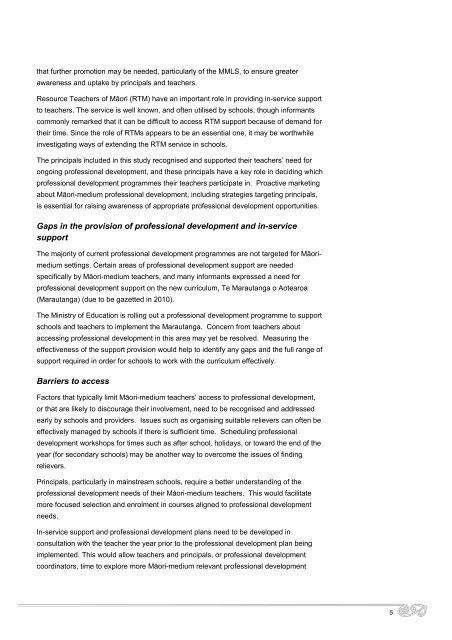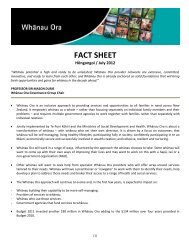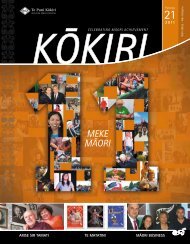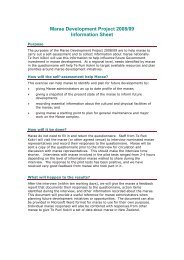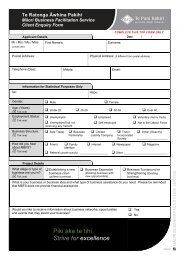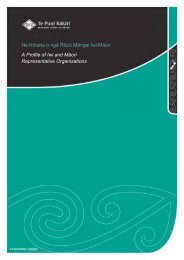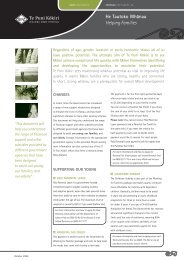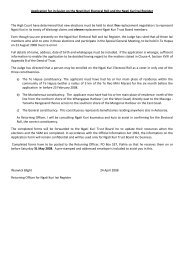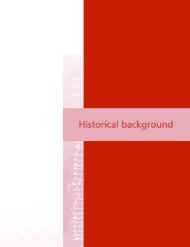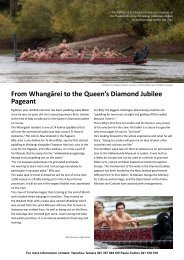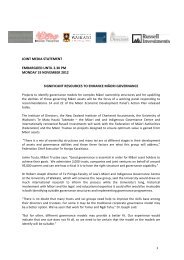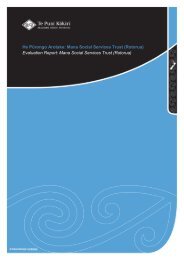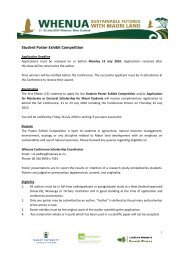Kia eke ki ngÄ Taumata, kia Pakari ngÄ Kaiako He ... - Te Puni Kokiri
Kia eke ki ngÄ Taumata, kia Pakari ngÄ Kaiako He ... - Te Puni Kokiri
Kia eke ki ngÄ Taumata, kia Pakari ngÄ Kaiako He ... - Te Puni Kokiri
Create successful ePaper yourself
Turn your PDF publications into a flip-book with our unique Google optimized e-Paper software.
that further promotion may be needed, particularly of the MMLS, to ensure greaterawareness and uptake by principals and teachers.Resource <strong>Te</strong>achers of Māori (RTM) have an important role in providing in-service supportto teachers. The service is well known, and often utilised by schools, though informantscommonly remarked that it can be difficult to access RTM support because of demand fortheir time. Since the role of RTMs appears to be an essential one, it may be worthwhileinvestigating ways of extending the RTM service in schools.The principals included in this study recognised and supported their teachers’ need forongoing professional development, and these principals have a key role in deciding whichprofessional development programmes their teachers participate in. Proactive marketingabout Māori-medium professional development, including strategies targeting principals,is essential for raising awareness of appropriate professional development opportunities.Gaps in the provision of professional development and in-servicesupportThe majority of current professional development programmes are not targeted for Māorimediumsettings. Certain areas of professional development support are neededspecifically by Māori-medium teachers, and many informants expressed a need forprofessional development support on the new curriculum, <strong>Te</strong> Marautanga o Aotearoa(Marautanga) (due to be gazetted in 2010).The Ministry of Education is rolling out a professional development programme to supportschools and teachers to implement the Marautanga. Concern from teachers aboutaccessing professional development in this area may yet be resolved. Measuring theeffectiveness of the support provision would help to identify any gaps and the full range ofsupport required in order for schools to work with the curriculum effectively.Barriers to accessFactors that typically limit Māori-medium teachers’ access to professional development,or that are likely to discourage their involvement, need to be recognised and addressedearly by schools and providers. Issues such as organising suitable relievers can often beeffectively managed by schools if there is sufficient time. Scheduling professionaldevelopment workshops for times such as after school, holidays, or toward the end of theyear (for secondary schools) may be another way to overcome the issues of findingrelievers.Principals, particularly in mainstream schools, require a better understanding of theprofessional development needs of their Māori-medium teachers. This would facilitatemore focused selection and enrolment in courses aligned to professional developmentneeds.In-service support and professional development plans need to be developed inconsultation with the teacher the year prior to the professional development plan beingimplemented. This would allow teachers and principals, or professional developmentcoordinators, time to explore more Māori-medium relevant professional development5


